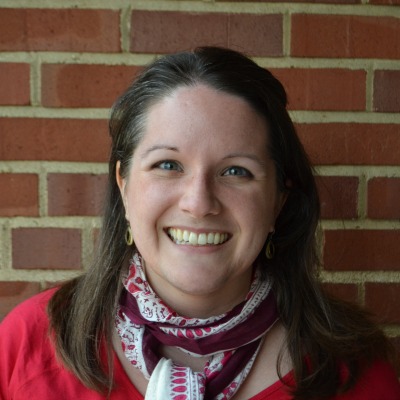Moving Beyond Fear in St. Louis
I first met the city of St. Louis in the summer of 2003. It was my second summer serving on YouthWorks staff, and I was thrilled to be serving at an urban site. The neighborhood we would call home that summer turned out to be a pretty tough, poverty- and crime-ridden area. When I returned to college that fall and told some classmates (who had grown up in the St. Louis suburbs) where I’d spent my summer, their eyes grew large with concern and alarm, “We would never go there.” I could only chuckle. I had absolutely loved my summer home. I had grown accustomed to ours being the only four white faces anywhere in sight. I found glimpses of beauty in a place where others found only ruin.
During that summer, I learned that St. Louis is a city of sharp contrasts, of significant economic and racial disparity, of the emptiness that comes when corporate dreams are dashed and industry leaves a city. But during that summer I also learned that St. Louis is a city with kind and gracious residents, some who would go out of their way to help us. I learned that it was a city that many have loved for generations, and that many long to see made better. I learned that it was a city where children grew up singing and playing in fire hydrants and jumping rope and dreaming of the future. I learned that it was a city that loves its baseball and its parks and its desserts.
That summer, I had an opportunity to practice looking beyond headlines, beyond statistics, beyond stereotypes, beyond first impressions and passing glimpses. I began to discover the importance of knowing the history, the culture, and the stories of a city and its people – both their hardships and their hope.
The things I had the chance to begin practicing that summer would guide the way I entered countless other communities in the years that followed. They would also prepare me to engage with current issues and events locally and globally. And they would, of course, inform my sense of the place I call home when I moved back to St. Louis in 2009 (just a year or two after one of my fellow YouthWorks staff members from the summer of ’03 did the same). All of this preparation has also proved vital to engaging well with my city in the past six months.
When news first spread of Michael Brown’s shooting and the protests and riots that quickly followed in August of 2014, I actually had to look Ferguson up on a map. St. Louis is surrounded by countless smaller municipalities, and though I had a vague idea of where Ferguson might be, I couldn’t pinpoint it. Six months later, this small city gets a mention in the Oscar-winning song “Glory,” backup dancers reference the event with their hands up at the Grammys, and “Ferguson” is now synonymous with racial injustice.
In the days, weeks and months following Brown’s death, St. Louis was a city on edge. Most of us stayed up too late watching the news, reading articles, following Twitter, and trying to make sense of what was happening in Ferguson and throughout the St. Louis area. It soon became very evident that people were upset about much more than one man’s death. This became even more clear as we waited for a Grand Jury to return one very significant verdict. The governor declared a State of Emergency, so as we waited and wondered, we couldn’t help but worry. There was uncertainty. There was pain. There was anger. And there was fear – fear of the “other,” whomever the “other” might be.
But in a tumultuous time when that age-old fear reared its ugly head, I thought back to that summer and to other YouthWorks experiences like it. I had spent enough time learning from, listening to, living alongside, worshiping with the “other” that fear could not prevail. So I’ve sought to listen well. I’ve sought to repent and recognize my own privilege. I’ve sought to remember that, as one friend said, “people are more important than ideas.” I’ve sought to find and offer glimpses of hope and beauty and light, even in dark times. I’ve sought to encourage others to do the same.

I’ve still found myself confused. I’ve still found myself torn when the issues are not clear-cut. And even now, I find myself seeking to listen well to yet another “other” – the voice of law enforcement – mainly through the voice of a friend who is a good, passionate, committed police officer. There is always more to learn, and for that I am thankful.
When we get beyond headlines, statistics, stereotypes, first impressions and passing glimpses – when we move beyond fear – we find glimpses of beauty in places where others find only ruin.
How will you move beyond? And who will you invite with you?

Jenilyn Swett spent five years and a total of nine summers serving with YouthWorks in various capacities. God used YouthWorks to shape and influence her in countless ways — she credits her time on staff with introducing her to Chick-Fil-A, all things Southern, the beauty of places like New Orleans and Savannah, and many of her dearest friends. Beyond that, she developed a deep love for the Church. After graduating from seminary,she now serves as the Director of Women’s Ministry at a church in St. Louis, Missouri (where she spent her second YW summer in 2003.)
